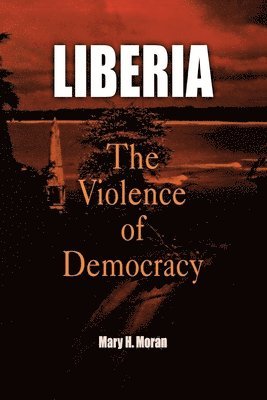
- Format
- Häftad (Paperback / softback)
- Språk
- Engelska
- Antal sidor
- 200
- Utgivningsdatum
- 2008-07-01
- Förlag
- University of Pennsylvania Press
- Illustrationer
- 15 illus.
- Dimensioner
- 226 x 150 x 13 mm
- Vikt
- Antal komponenter
- 1
- Komponenter
- Paperback
- ISBN
- 9780812220285
- 318 g
Liberia
The Violence of Democracy
- Skickas från oss inom 5-8 vardagar.
- Fri frakt över 249 kr för privatkunder i Sverige.
Passar bra ihop
De som köpt den här boken har ofta också köpt Who's Afraid of Gender? av Judith Butler (inbunden).
Köp båda 2 för 716 krKundrecensioner
Recensioner i media
"Drawing on the author's ethnographic fieldwork in a Glebo community outside Harper, Liberia in the early 1980s, and her continued contact with Liberians in West Africa and in the diaspora, Liberia: The Violence of Democracy takes aim at the popular and scholarly tendency to treat violence and representative democracy as polar opposites. . . .Moran offers a compelling Africanist case study to be read in conjunction with the Europeanist political philosophy of thinkers like Jacques Rancire or Giorgio Agamben. This is, however, an extremely accessible book, and its greatest contribution may come if and when it is picked up by policymakers and the staff of international NGOs." * <i>Journal of Contemporary African Studies</i> *
Övrig information
Mary H. Moran is Professor of Anthropology and Africana and Latin American Studies at Colgate University. She is the author of Civilized Women: Gender and Prestige in Southeastern Liberia.
Innehållsförteckning
Introduction: Liberia, Violence, and Democracy 1. The Case for Indigenous Democracy 2. Contested Histories 3. Civilization and the Liberian Nation 4. The Promise and Terror of Elections 5. The Lock on the Outhouse Door: Discourses of Development 6. The Crisis of Youth and the Promise of the Future 7. Conclusion: A Wedding and a Funeral References Index Acknowledgments
Du kanske gillar
-
48 Laws of Power
R Greene
Häftad


